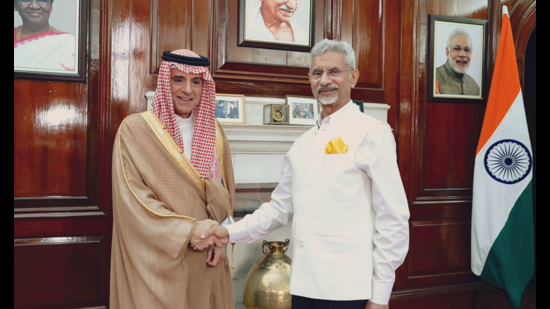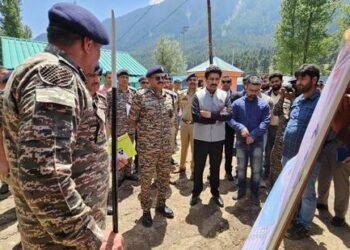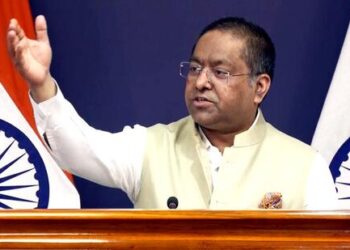Saudi Arabia’s Minister of State for Foreign Affairs, Adel al-Jubeir, arrived in New Delhi on Thursday on an unannounced visit and held talks with External Affairs Minister S. Jaishankar. The visit occurred against the backdrop of escalating tensions between India and Pakistan following India’s military strikes in response to the April 22 Pahalgam terror attack.
Al-Jubeir, who also serves as Saudi Arabia’s climate envoy, met Jaishankar for a closed-door discussion. The only official word came from Jaishankar via a social media post, stating: “A good meeting with @AdelAljubeir, Minister of State for Foreign Affairs of Saudi Arabia this morning. Shared India’s perspectives on firmly countering terrorism.”
The military action, code-named Operation Sindoor, saw Indian forces strike terrorist infrastructure at nine locations across Pakistan and Pakistan-occupied Kashmir (PoK). The Pakistani military claimed that the strikes resulted in 26 fatalities and 46 injuries. These developments followed the deadly Pahalgam terror attack, which killed 26 Indian civilians, prompting India to suspend the Indus Waters Treaty and impose a series of diplomatic and economic sanctions on Pakistan.
Notably, the Saudi minister’s visit came just hours after Iranian Foreign Minister Seyed Abbas Araghchi arrived in New Delhi for a previously scheduled meeting of the bilateral joint commission. Araghchi’s visit has been closely watched following his recent offer to mediate between India and Pakistan, referring to both as “brotherly nations.” His remarks drew criticism in Indian diplomatic circles, especially after his unscheduled trip to Islamabad earlier this week.
Araghchi’s swift diplomatic shuttle—first to Pakistan, then back to Tehran, and finally to India—was seen as Iran’s attempt to maintain balanced ties with both South Asian neighbors amid rising hostilities.
Meanwhile, signs of back-channel diplomacy between India and Pakistan have emerged. Pakistan’s Deputy Prime Minister and Foreign Minister, Ishaq Dar, in an interview with TRT World, confirmed a recent “contact” between the national security advisers (NSAs) of both nations, though he provided no further details.
The development gains added importance following Pakistan’s appointment of Lt Gen Muhammad Asim Malik, chief of the Inter-Services Intelligence (ISI), as the country’s new NSA—a post left vacant since April 2022. The move is seen as granting the Pakistani military greater control over any covert diplomatic engagements with India.
Over the past decade, several secret meetings between Indian and Pakistani officials, including NSAs, have taken place in neutral venues such as Thailand and the UK to manage bilateral flashpoints. Whether the recent diplomatic flurry signals another effort to de-escalate or simply harden positions remains to be seen.








 India
India












